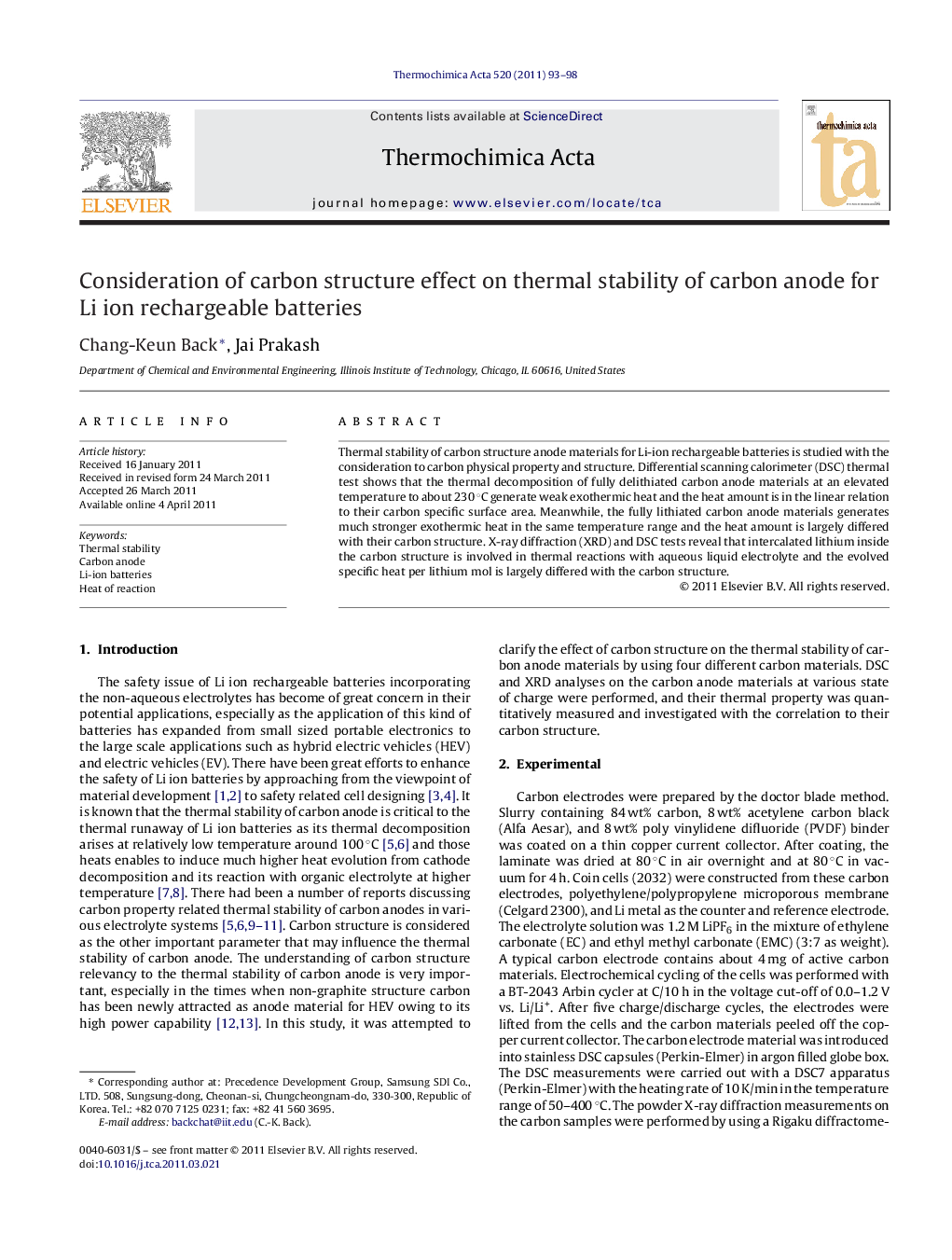| Article ID | Journal | Published Year | Pages | File Type |
|---|---|---|---|---|
| 674529 | Thermochimica Acta | 2011 | 6 Pages |
Thermal stability of carbon structure anode materials for Li-ion rechargeable batteries is studied with the consideration to carbon physical property and structure. Differential scanning calorimeter (DSC) thermal test shows that the thermal decomposition of fully delithiated carbon anode materials at an elevated temperature to about 230 °C generate weak exothermic heat and the heat amount is in the linear relation to their carbon specific surface area. Meanwhile, the fully lithiated carbon anode materials generates much stronger exothermic heat in the same temperature range and the heat amount is largely differed with their carbon structure. X-ray diffraction (XRD) and DSC tests reveal that intercalated lithium inside the carbon structure is involved in thermal reactions with aqueous liquid electrolyte and the evolved specific heat per lithium mol is largely differed with the carbon structure.
► Thermal stability of different carbon structure anode materials for Li-ion rechargeable batteries. ► Carbon specific surface area and structure are important factors. ► Controlling factor of carbon specific surface area in the fully delithiated carbon anodes. ► Controlling factor of carbon structure in the fully lithiated carbon anodes. ► The amount of lost intercalated lithium in the linear relation to carbon specific surface area. ► The heat of reaction per intercalated Li-mol in the reverse relation to the average discharge potential of the carbon anode.
